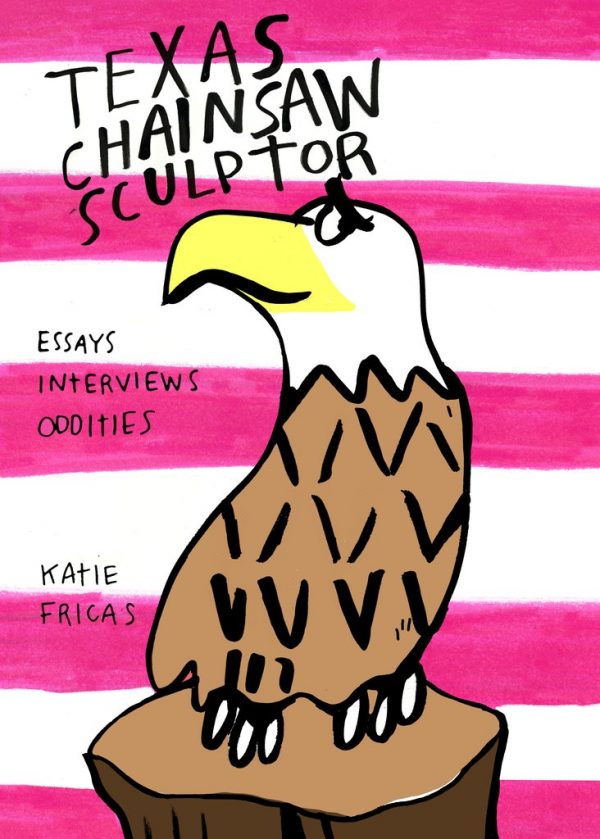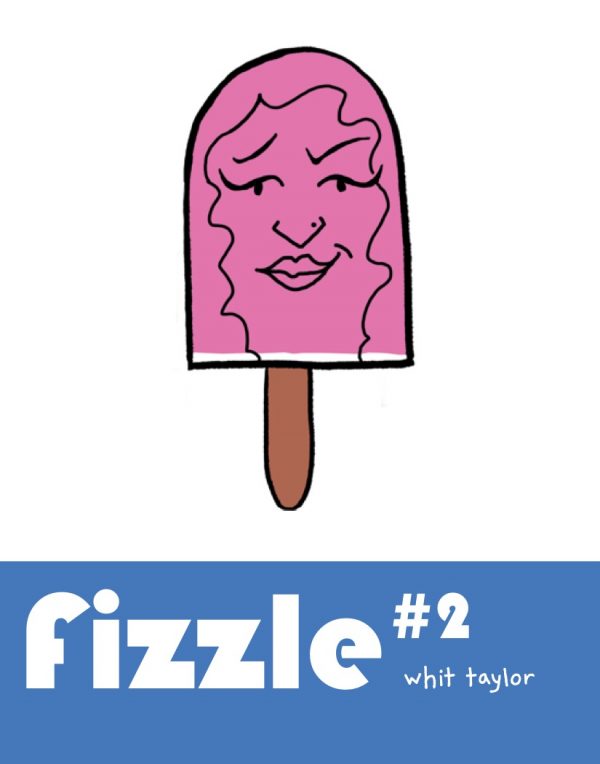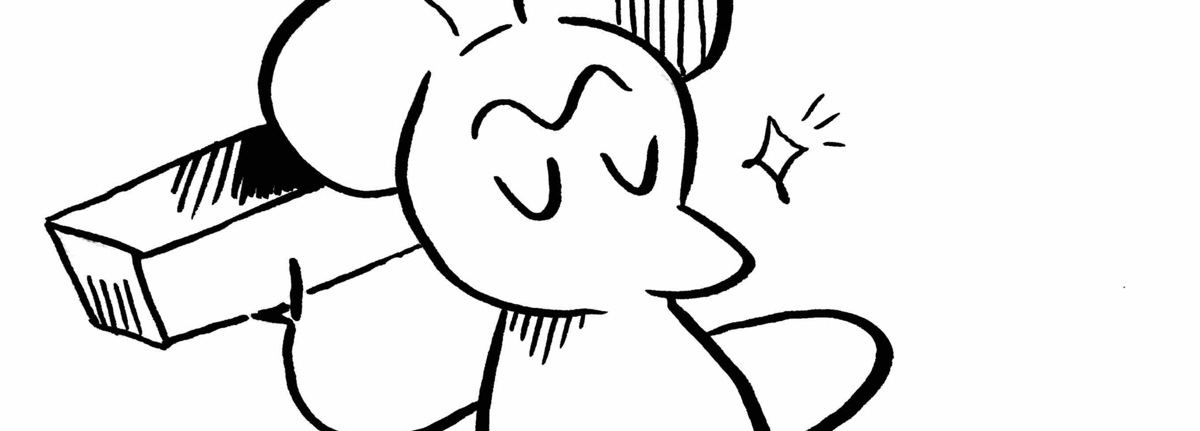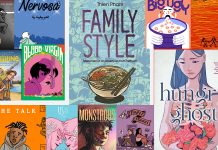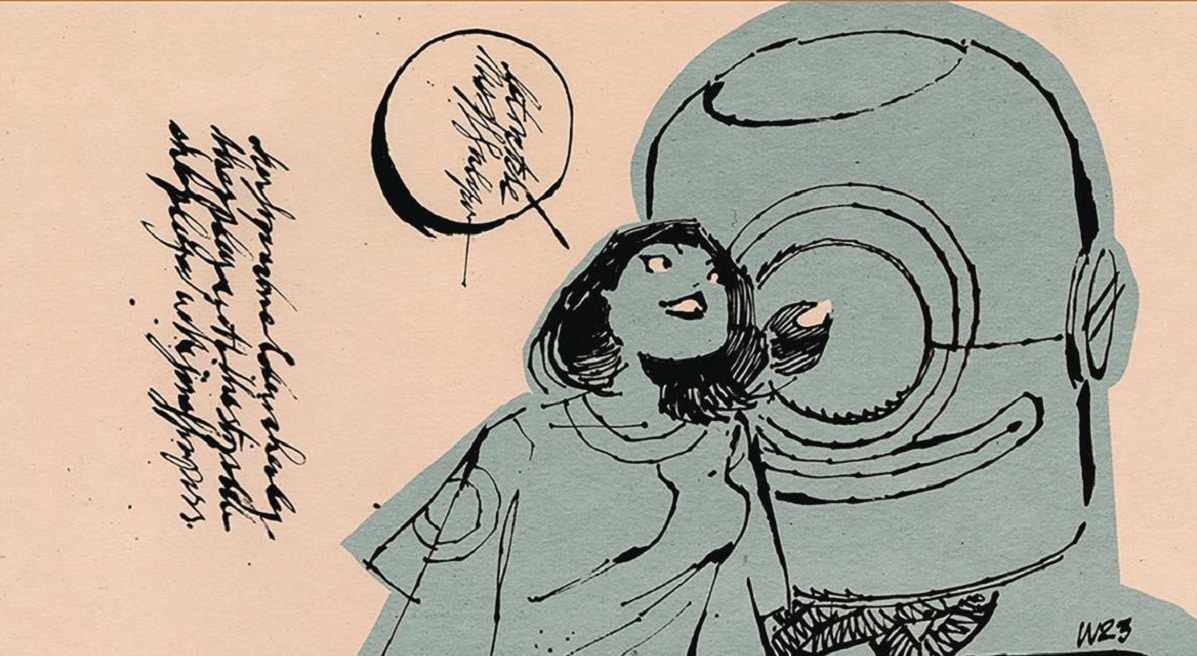Fizzle #2
By Whit Taylor
Radiator Comics
I reviewed the first issue of this Whit Taylor title more than a year ago when she self-published it, but now that it’s been picked up by Radiator Comics the first two issues have been re-released simultaneously in preparation for the upcoming issues. Since I never actually read the second issue, it seemed ridiculous for me to not take advantage of this perfect storm of comics re-rerelease to dive into it — and the first issue again.
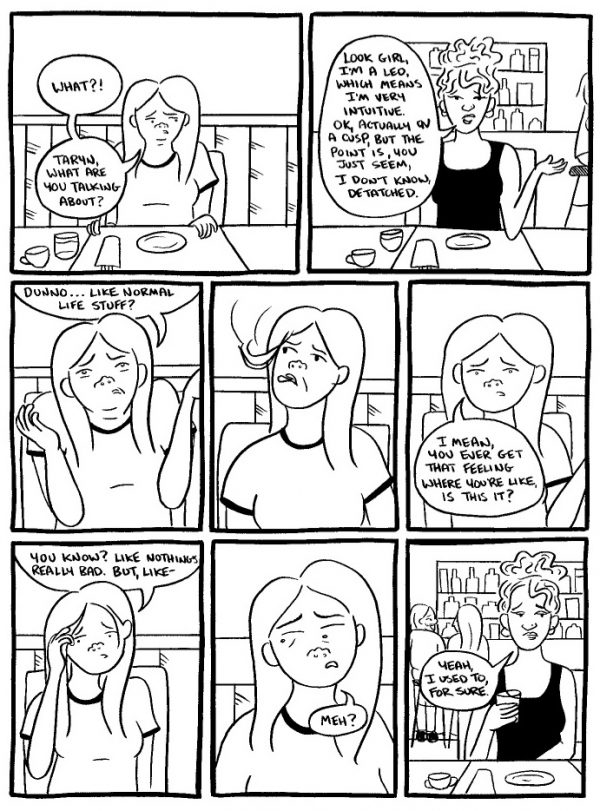
The second issue picks up moments from the first when Claire was on her way to the farmer’s market to pick up fruit for homemade popsicles. Once there, her experience only elevates her feelings of isolation as she fails to interact with the world on any level that satisfies her and even her fantasies of doing so are awkward, setting the tone for her lonely trudge through the day and, invariably, life.
Claire walks through the rest of the issue with the same fearful indifference, whether she’s chatting with her mom on the phone, at lunch with her friend Taryn, who notices Claire’s apathy and attempts to address it, or watching an entrepreneurial TV show where contestants vie for investment money in ideas not too far removed from Claire’s new interest in making popsicles. Is this a spark for her? Or another fizzle?
Stories about emptiness and depression can be a bummer, but not in Taylor’s hands. She’s insightful enough to pierce the surface of portrayal and provide more to latch onto, but she’s also canny enough to not drench the story in the sadness that she’s allowed to pour out. That’s because through it all Taylor maintains a friendly sense of humor and makes sure that even with the glum existence of her main character we’re not shielded from the funny aspects of the darkness. That makes things easier to read, but also more relatable, which is something Taylor’s displayed in other work. I’ve no clue where Claire’s life is heading, but I do know that you can trust Taylor to follow it in a refreshing, engaging, sensitive way.
Texas Chainsaw Sculptor
By Katie Fricas
Paper Rocket Comics
Cartoonist Katie Fricas mostly focuses on gatherings in Texas Chainsaw Sculptor in order to examine the parts of the whole with a specific in how the whole represents — or fails to represent — the parts that she takes some time with.
It’s an eclectic set of choices that she features here — the 2016 Republican Convention in Cleveland, the Mr. Coney Island pageant, and the Texas State Fair in Dallas — but Fricas renders them all well in her glorious drawings that combine the best aspects of simplicity and sloppiness to create a complexity erupting with bravado that speaks to the subtlety of art mastery.
At the Republican Convention, she documents the rhetoric of the attendees who she states outright misread the Trump candidacy as somehow in service of their concerns. It’s convenient, though, that the part of the supporters’ concerns that push racism as an honest solution to American problems are perfectly consistent with Trump’s authoritarian tendencies and his own racism.
Thankfully, it’s not all so depressing. Fricas provides a blow-by-blow of the Mr. Coney Island pageant that retains the events’ freewheeling and irreverent revolutionary quality that feels more in line with 
Put in the context of these other two happenings, the Republican Convention partially feels like a kindred place on the surface, an equal haven for colorful people and eccentric thought, at least on the fringes of the event. It is that, but it’s also something more sinister, providing a meeting place for the disenfranchised who feel anger and who are ready to lash out. It’s another scene of the vibrant peculiarities that are part of American culture, but an instance of it going so wrong and being so manipulated. Fricas’ portrayal is jarring and timely but also does the admirable job of laying out for us the complexities of the American persona, of both the thin line and vast schism that separate the camps in different ways.


